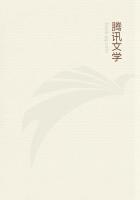The reading of it is like travelling over an immense plain, which looks inviting at the distance, but in which we find no spots of fertility or of historical interest.It looks as if the good-humored but phlegmatic man were incapable of discussing the nature of the passions.The composition, though clear and sustained, is never elevated by bursts of feeling or irradiated by gleams of genius.He has a theory to support, and he defends it by wiredrawn ingenuity.When he treats of the understanding, if be does not establish much truth, he at least overthrows venerable error, and we are constrained to admire his intellectual energy and courage; but, in dealing with the feelings of our nature, he wastes his strength in rearing a baseless fabric, which, so far as I know, no one has ever adopted, and no one has been at the trouble to assail.He has no proper analysis of man's original springs of action.He says only in a general way, that "the chief spring or actuating {148} principle of the human mind is pleasure and pain." He gives no psychological account of the place which the idea or apprehension of an object as good or evil, or rather as appetible or inappetible, has in all feeling.Of course, all passions are according to him impressions, only he calls them reflective impressions, to distinguish them from sensations.The reflective impressions are of two kinds, the calm and the violent; the first including beauty and deformity, and the latter such passions as love and hatred, grief and joy, pride and humility.He connects his theory of the passions throughout with his theory of the understanding.There are associations among the passions, as there are associations among ideas; only he says, that while ideas are associated by resemblance, contiguity, and causation, impressions are associated only by resemblance.There has as yet been no thorough examination, so it appears to me, of the laws of succession of feeling, as distinguished from that of ideas;I am not convinced that the theory of Hume, that feelings are associated only by resemblance, is the correct one.He draws a distinction between the cause and the object of passion.Thus if a man has made a beautiful house, the object of the passion is himself, and the cause is the beautiful house.The idea of ourselves is always present with, and conveys a' sensible degree of vivacity to the idea of any other object to which we are related; in short, turns the idea into an impression.Some other person is the object of love, but the cause of that passion is the relation of that person to self.Out of this may proceed the desire of happiness or misery of others, which he describes "<as an arbitrary and original instinct implanted in our nature>," -- I put the language in italics, as I may have occasion again to refer to it.In this way he constructs an elaborate, but by no means clear, theory of the passions.He divides them into direct and indirect.By direct, he understands such as arise immediately from good or evil, that is, from pain or pleasure.He says of them: " The direct passions frequently arise from a natural <impulse or instinct, which is perfectly unaccountable>.Of this kind is the desire of punishment to our enemies and of happiness to our friends, hunger, lust, and a few other bodily appetites." Under the direct, he includes desire, aversion, grief, joy, hope, fear, despair, and security.The indirect proceed {149} from the same principles, but by conjunction with other qualities; and he comprehends under them pride, humility, ambition, vanity, love, hatred, envy, pity, malice, generosity, with their dependents.It may be said of his exposition of the passions generally, that he has often seized on important circumstances which modify their action, but has altogether failed in his explanation of their nature.Thus he has some just remarks upon the transition of one idea to another, upon the effects thus produced, and upon the predominant passion swallowing up the inferior; but after all we have no proper evolution of the psychological process.
He occasionally refers to beauty, but the account he gives of it is very inadequate."Beauty is such an order and construction of parts, as either by the primary constitution of our nature, or by custom, or by caprice, is fitted to give a pleasure and satisfaction to our souls." "The conveniency of a house, the fertility of a field, the strength of a horse, the capacity, security, and swift-sailing of a vessel, form the principal beauty of these several objects." It is clear that the aesthetic tastes of one satisfied with such a theory could not have been keen, and we do not wonder to find that in the letters written during his travels, he never makes a single allusion to a fine statue or painting.
The account which he gives of the will is still more defective."The will is the internal impression we feel and are conscious of, when we knowingly give rise to any new motion of our body." Surely we may have will in regard to our mental operations as well as in regard to our bodily motions.The will, he says, is an impression, but surely it is an impression of a very peculiar kind; and he should have inquired, which he has not done, into its nature, when he would have seen that it possesses an essential *******.As not perceiving this, he has left nothing to save man from being driven on by an iron necessity.
In Book Third, he treats of morals, and starts his utilitarian theory, which, however, he develops more fully, and in a livelier, more pointed, and ornate manner, in his essay, ,An Inquiry concerning the Principles of Morals." He says of this work, that it is " of all my writings, historical, philosophical, or literary, incomparably the best." In respect of practical influence, {150} it has certainly been the most important.By his speculative doubts in regard to the operations of the under standing he has furnished a gymnastic to metaphysicians ever since his time;but by his theory of virtue he has swayed belief and practice.













